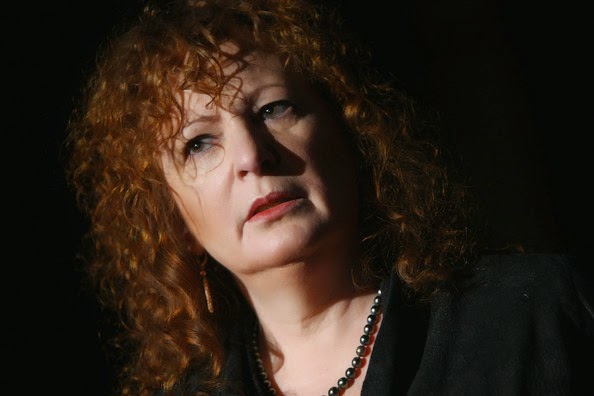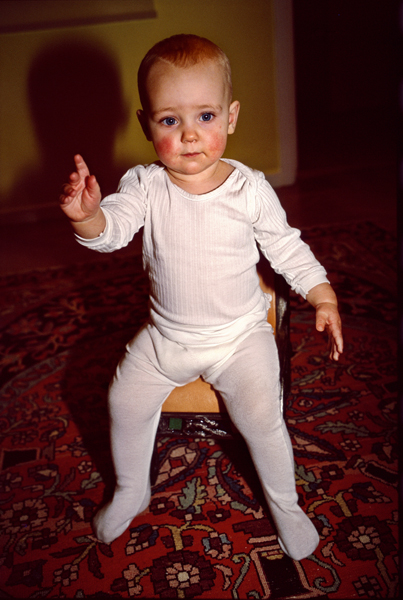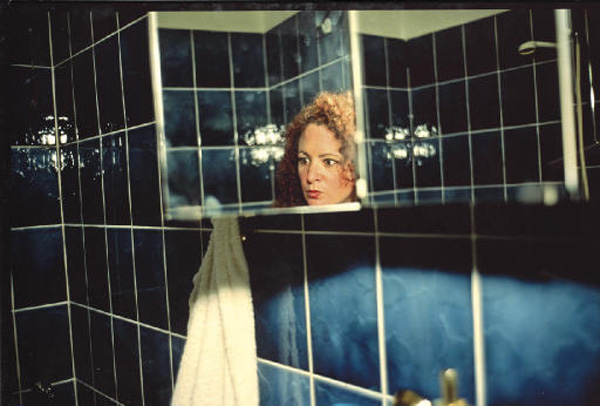



I think that Arbuss work is all about herself. Her genius is about not wanting to be herself, about wanting instead to be each person that she photographed. At the time she was photographing them, she was really trying their skin on. Its the work of someone with empathy that borders on psychosis. But I felt with the drag queens she was seeking to reveal them and that wasnt my desire. My desire was to show them as a third gender, as another sexual option, a gender option. And to show them with a lot of respect and love, to kind of glorify them because I really admire people who recreate themselves and who manifest their fantasies publicly. I think its really brave. I just really have so much love and respect and attraction for the queens. So I dont like her stripping them and exposing them according to her own preconceptions of who they are.
Well, a woman in love with a drag queen: like sexually in love with a drag queen. And Im not the only woman. There was another woman who hung out on the scene, whos still with the same drag queen 20 years later. Theyre still together in Boston. I know a couple of other women now, who are with drag queens. But I remember going through psychology books trying to find something about it when I was 19. There was one little chapter in an abnormal psych book that made it sound so I dont know what they ascribed it to, but it was so bizarre. And thats where I was at that time in my life. I lived with them; it was my whole focus. It was my whole context. Everything I didthats who I was with all the time. And thats who I wanted to be. I was really kind of slavishly devoted to them. When I photograph the queens now, its very different from the work I did then because theyre not my whole life.
Well, I never really learned technology. In October of 1990, I got a Leica. All the other years I used cameras that I could buy hot in the bar where I used to be a bartender. In the early 70s, technology in the photo world was what Postmodernist theory is now. I have the same aversion to Postmodern theory as I did to technology. I dont think either of them have anything to do with the creative process. I responded very strongly against the obsession with technology that was in the photo world in the early 70s. When we went to school, it was the rocking tree school where your photographs had absolutely no content, but you made perfect pictures and perfect prints. And photographers, particularly male, only discussed their cameras and equipment. My response was to not get involved with that at all. Actually, we used to call ourselves the scratch and dust school. (laughter) Unfortunately, now that somebody is printing my early black-and-white work, its a bit of a problem because my negatives are so fucked-up. My students are still shocked by how little I know technically. They teach me a lot.
Yeah, it was and I had a totally romantic notion of being a junkie. I wanted to be one. I went through that briefly when I was eighteen; then I stopped. I started drinking when I started hanging out at the drag queen bar. Part of my work had to do with drinking. I wanted to remember everything that had happened the night before. When people talk about the immediacy in the work, thats what it was about: this need to remember and record every single thing. Until I got sober, I was totally obsessed with memory. When I got sober I forgot everything, and its been sort of a big freedom. My memorys terrible now.
But there is something wonderful about the disinhibition of substances, you know. Because of the euphoria of substance use you think that the work is really good. Its hard to feel adequate without them. Its not hard. Its just different. Its a different process I have to learn.
Well, I really believed when I did drugs that my brain opened. The drugs that I was doing were extremely mind-altering, but not necessarily mind expanding. In the end, anyway. But that sense of expansion came when I was under the euphoria of that drug. Its not clear that it actually expanded my vision but I felt that it did. When youre tied into that belief, its really hard to get sober as an artist. I really believed that if I couldnt work without drugs, that I could not stay sober. I said that the whole time I was in the hospital.
Oh, I think those are two different issuesmaintaining this position of being marginalized and different. I loved that position and I still maintain it to some extent. Drugs assured me that I wasnt my mother, assured me that I wasnt like the people that I see functioning in society whose structures I basically dont approve of. Then theres the internal feeling that thats where your creativity lies, the belief that drugs really expand your vision, that you can see more and articulate more, realize more. Writing in the journal was left-brain activity; the obsessive, neurotic need to retain. I felt like the drugs freed me to my right brain.




